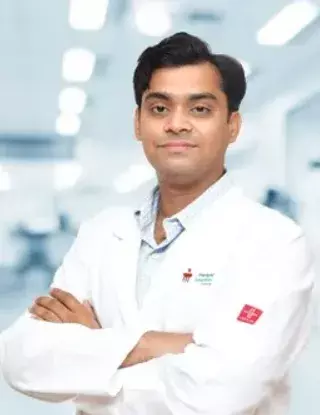- Home
- Medical news & Guidelines
- Anesthesiology
- Cardiology and CTVS
- Critical Care
- Dentistry
- Dermatology
- Diabetes and Endocrinology
- ENT
- Gastroenterology
- Medicine
- Nephrology
- Neurology
- Obstretics-Gynaecology
- Oncology
- Ophthalmology
- Orthopaedics
- Pediatrics-Neonatology
- Psychiatry
- Pulmonology
- Radiology
- Surgery
- Urology
- Laboratory Medicine
- Diet
- Nursing
- Paramedical
- Physiotherapy
- Health news
- Fact Check
- Bone Health Fact Check
- Brain Health Fact Check
- Cancer Related Fact Check
- Child Care Fact Check
- Dental and oral health fact check
- Diabetes and metabolic health fact check
- Diet and Nutrition Fact Check
- Eye and ENT Care Fact Check
- Fitness fact check
- Gut health fact check
- Heart health fact check
- Kidney health fact check
- Medical education fact check
- Men's health fact check
- Respiratory fact check
- Skin and hair care fact check
- Vaccine and Immunization fact check
- Women's health fact check
- AYUSH
- State News
- Andaman and Nicobar Islands
- Andhra Pradesh
- Arunachal Pradesh
- Assam
- Bihar
- Chandigarh
- Chattisgarh
- Dadra and Nagar Haveli
- Daman and Diu
- Delhi
- Goa
- Gujarat
- Haryana
- Himachal Pradesh
- Jammu & Kashmir
- Jharkhand
- Karnataka
- Kerala
- Ladakh
- Lakshadweep
- Madhya Pradesh
- Maharashtra
- Manipur
- Meghalaya
- Mizoram
- Nagaland
- Odisha
- Puducherry
- Punjab
- Rajasthan
- Sikkim
- Tamil Nadu
- Telangana
- Tripura
- Uttar Pradesh
- Uttrakhand
- West Bengal
- Medical Education
- Industry
Rare Disease Show Episode 18: Understanding Alagille Syndrome with Dr Koutarapu Chandrakant - Video
|
Overview
Rare Disease Show Episode 17-- In today's show we will cover Alagille Syndrome.
Alagille syndrome is a rare genetic disorder caused by mutations in the JAG1 or NOTCH2 genes, affecting multiple organs, primarily the liver, heart, and skeletal system. It is characterized by bile duct paucity, leading to cholestasis, jaundice, severe itching, and fatty skin deposits.
Heart defects, such as pulmonary artery stenosis or Tetralogy of Fallot, are common, along with distinct facial features (broad forehead, pointed chin), butterfly-shaped vertebrae, and eye abnormalities like posterior embryotoxon.
Patients may experience delayed growth, developmental challenges, and kidney issues. Diagnosis involves genetic testing, liver biopsy, echocardiography, and eye exams. Treatment focuses on managing symptoms with medications to improve bile flow, fat-soluble vitamins, surgical interventions for heart defects, and, in severe cases, liver transplantation. While the severity varies, early diagnosis and a multidisciplinary approach can enhance outcomes and quality of life.
In this episode, Dr Koutarapu Chandrakant, a Consultant Gastroenterologist at Fortis Hospital, CG Road shares his insights by addressing questions asked by the Medical Dialogues team-
A. Understanding Alagille Syndrome:
1. Can you explain what Alagille Syndrome is and why is it a rare disease?
2. What are the key genetic causes of Alagille Syndrome, and how is it inherited?
B. Symptoms and Diagnosis:
3. What are the most common symptoms of Alagille Syndrome, particularly in the gastrointestinal and hepatic systems?
4. What diagnostic tests are used to confirm Alagille Syndrome, and how early can it be detected?
C. Gastrointestinal and Liver Impact:
5. How does Alagille Syndrome typically affect the liver, and what is the risk of developing chronic liver conditions like cirrhosis?
6. How does malabsorption, particularly of fat-soluble vitamins, affect patients with Alagille Syndrome, and what dietary adjustments are recommended?
D. Management and Treatment:
7. What are the current treatment options for managing the liver and gastrointestinal symptoms of Alagille Syndrome?
8. In severe cases, liver transplant may be necessary—when is this typically considered for Alagille Syndrome patients?
9. What role do medications like ursodeoxycholic acid (UDCA) play in treating the cholestasis (bile flow blockage) associated with this syndrome?
E. Future Research and Advancements:
10. Are there any promising advancements in the treatment of Alagille Syndrome, particularly in liver or gene therapy?
11. What ongoing research or clinical trials are currently being conducted that might offer new hope for patients with Alagille Syndrome?
Speakers
Dr. Nandita Mohan is a practicing pediatric dentist with more than 5 years of clinical work experience. Along with this, she is equally interested in keeping herself up to date about the latest developments in the field of medicine and dentistry which is the driving force for her to be in association with Medical Dialogues. She also has her name attached with many publications; both national and international. She has pursued her BDS from Rajiv Gandhi University of Health Sciences, Bangalore and later went to enter her dream specialty (MDS) in the Department of Pedodontics and Preventive Dentistry from Pt. B.D. Sharma University of Health Sciences. Through all the years of experience, her core interest in learning something new has never stopped. She can be contacted at editorial@medicaldialogues.in. Contact no. 011-43720751
Dr Koutarapu Chandrakant (MBBS, MD (General Medicine), DrNB (Medical Gastroenterology), Fellowship in Advanced Endoscopy) is a Consultant Gastroenterologist at Fortis Hospital CG Road. He has over 10 years of experience in the field of Gastroenterology, in India. He specialises in all areas of Gastroenterology. Dr Chandrakant completed his MBBS from Guntur Medical College, followed by a Postgraduate degree in MD General Medicine from YSRUHS. Dr. Chandrakant furthered his expertise with a DrNB in Medical Gastroenterology from AIG, Hyderabad. Additionally, he pursued a Fellowship in Advanced Endoscopy, enhancing his skills and knowledge in this specialised area. He has done more than 20,000 endoscopy and colonoscopy procedures, more than 500 ERCPs. Dr Chandrakant has a special interest in EUS and has done more than 200 procedures.




